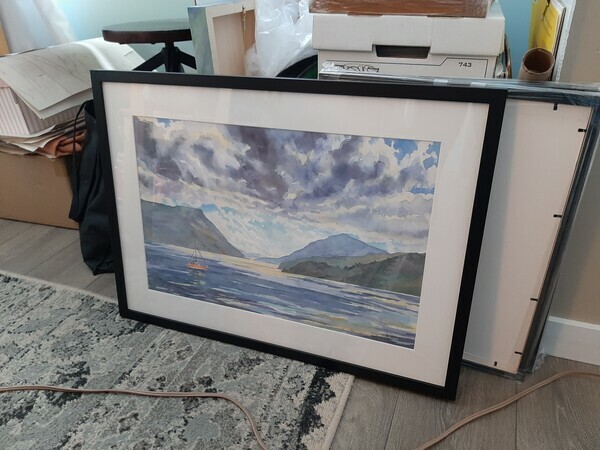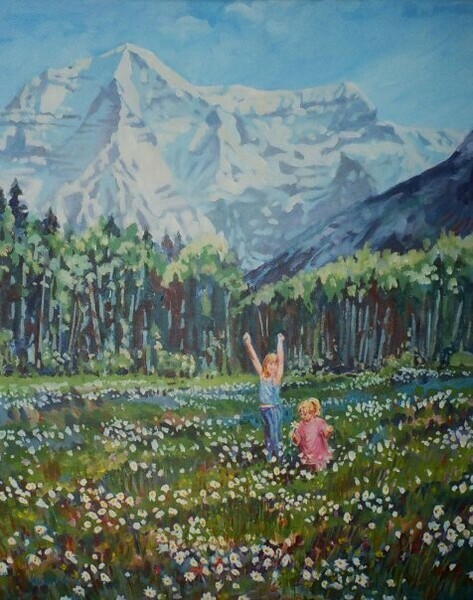Blog
Commissions are art works specifically painted for a customer, at their request. Sometimes it is done for an individual, sometimes for a corporate client. A good overview of commissions is here: https://www.artacacia.com/blogs/posts/art-commission-guide-how-do-artist-commissions-work
I rarely do commissions. I find they stress me out. I feel under pressure to have the art be a success. Often, the subject is not one I would have chosen, or includes elements I would not normally enjoy drawing or painting. On occasion I will do them, usually as gifts, when the subject is something meaningful to the customer, and the customer is someone meaningful to me.
I find the key to a commission, when someone hands over a snapshot of their pet, or vacation, or wedding, or the like, is to find out one key thing. What is it about the scene that they really react to? Usually a photo, if someone wants it immortalized in a painting, is of a place or time or person that evokes an emotion or memory, and usually there is some element of the photo that is the significant thing - to them.
It might be the time of year (I always loved going fishing at the cabin with Dad in autumn), or the expressions and postures (my dog always tipped his head to the right just like that when he wanted a pet), or the lighting (we used to sit on the beach for drinks every sunset). You need to find the key elements that the client wants in the painting, not what your artistic sensibilities might dictate, and then arrange them as best you can into a good composition etc. If it was that emerald green water that the customer remembers, don't make the water blue. Or purple.
Find out too what can be left out. You might think the ugly post in the front wrecks the composition. Your customer might remember that as the hitching post grandpa built, where everyone tied their horses to unsaddle. Don't take your usual liberties until you know. I also find it is useful to have the customer see the concept drawing, and have them make key decisions (can I move that post over here?) You are trying to capture the feeling for them of the scene that they see in their mind's eye.

Love at Maple Bay, watercolour
This is a recent example. The customer's photo had several boats, a pier, a foreground railing, and was longer and thinner. But what they remembered was the sky and the mountains and really what they wanted was to capture the day they consider their first romantic date. So this painting was about capturing the mood and the natural landscape, and I was able to simplify the busy foreground and just include one boat to provide some interest and colour in the foreground.

Springtime, acrylic
Here's another example. My mother had a series of photos she took at my brother's cabin in the mountains. She had some lovely memories of trips there, with her two granddaughters. I was able to do a composite drawing from her photos, and some of my own mountain pictures from the area, and then translate that into a unified scene. Essentially, I was recreating my mother's memory from several rather poor snapshots. But it was the wildflowers, the location, and most importantly the girls, that formed the essence of the scene - the rest is all detail that doesn't really matter, including changing the t-shirt colour for one of the kids as a bit of artistic licence. The key was capturing the feeling of the moment for her.
I chose to work in acrylics rather than watercolour as I felt at the time it would make rendering the very complex field of flowers easier to deal with, and also made it a bit easier to change details of the girls if anything was not "quite right." There's something to be said for a medium that allows you to just gesso over a spot that you mess up, haha. But see, there it is ... that pressure to have the painting "work" that makes me avoid commissions for the most part!